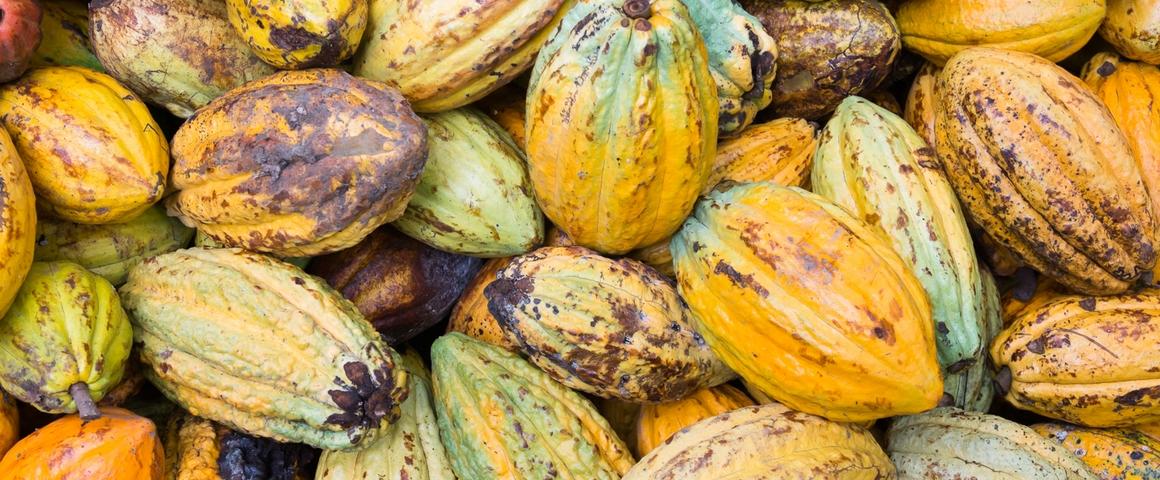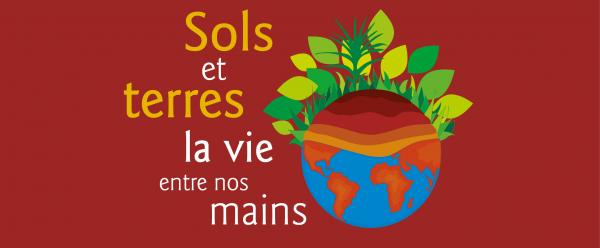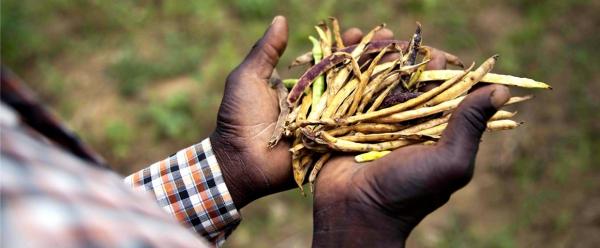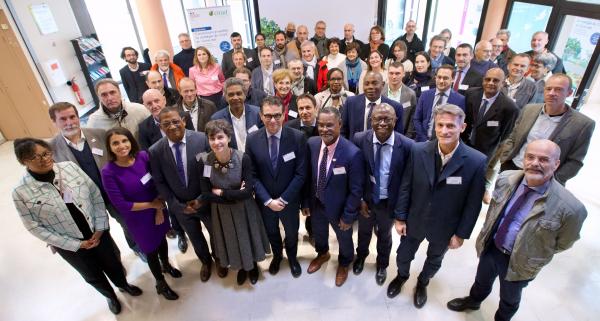Event 12 February 2024
- Home
- Press area
- Press releases
- International Symposium on Cocoa Research
The future for cocoa growing | Global research is on the case

Cocoa pods © Fabien Beilhe
From 5 to 7 December, Montpellier's Corum Centre will be hosting the second International Symposium on Cocoa Research (ISCR), organized this year by the International Cocoa Organization (ICCO) and CIRAD. What will the cocoa value chain have to look like tomorrow, in the light of climate change, deforestation and economic justice issues? Scientists, producers, cooperatives, traders, chocolate makers, policymakers and members of civil society will be meeting to shed light on the question.
There will be three days of debate and more than 75 presentations, with simultaneous translation in English, French and Spanish. See the detailed programme here.
Economic and environmental justice is vital
In the global North, chocolate is often in the hot seat as regards imported deforestation. France has demonstrated its commitment to tackle such practices, through its National Strategy to Combat Imported Deforestation (SNDI), launched in 2018. The ISCR participants will undoubtedly be advocating solutions that are for the sector.
Those solutions will have to take account of the economic viability of the activity, particularly decent wages for cocoa producers. Cocoa growing currently supports between 40 and 50 million people in the global South, including 5.5 million family farmers. Just 10% of those people make what could be called a decent living.
The pointers expected to emerge from the discussions include examples of successful agroecological transitions. Agroforestry systems, in particular, are among the models CIRAD is studying closely. The cocoa sector of the future will have to be capable of combating deforestation and boosting producers' incomes by diversifying the crops they grow, and of adapting to climate change and the shrinkage of the areas suitable for cocoa growing.
Opening press conference - Monday 5 December, 11:00-11:30, Corum Centre
With the Chair of the Symposium's Scientific Committee, Bruno Efombagn, a researcher from Cameroon's Institut de Recherche Agricole pour le Développement (IRAD), ICCO's Michel Arrion and CIRAD's Jean-Paul Laclau.
To register, contact presse@cirad.fr
Meeting with chocolate makers from Montpellier – Wednesday 7 December, 14:00, Maison des relations internationales
An exhibition open to the general public, "Le monde du cacao", will be inaugurated on Wednesday 7 December, from 14:00 to 19:00, at the Maison des relations internationales. From pod to bar, the exhibition will trace the current issues surrounding cocoa growing: botany, cocoa processing, chocolate aromas, consumption, and so on.
Scientist specializing in chocolate processing will be available to answers questions from the public, and chocolate makers from Montpellier will be offering samples of their products: Comptoir du Chocolat, Yves Thuriès and Chocolats Thierry Papereux.
About ICCO
The International Cocoa Organization (ICCO) is an intergovernmental body founded in 1973 under the auspices of the United Nations and operating within the framework of successive International Cocoa Agreements.
The Organization comprises 51 Member countries, of which 22 are cocoa-exporting countries and 29 are cocoa-importing countries. These Member countries together represent 92% of world cocoa exports and 80% of world cocoa imports. ICCO has the mandate to support the economic, social and environmental sustainability of the global cocoa sector, notably to improve living conditions for cocoa growers. It is a hub of knowledge and innovation on the global cocoa economy; an institutional cooperation platform to foster dialogue between its Member countries and the main players in the cocoa value chain; and a provider of technical support to those Member countries.
www.icco.org


























